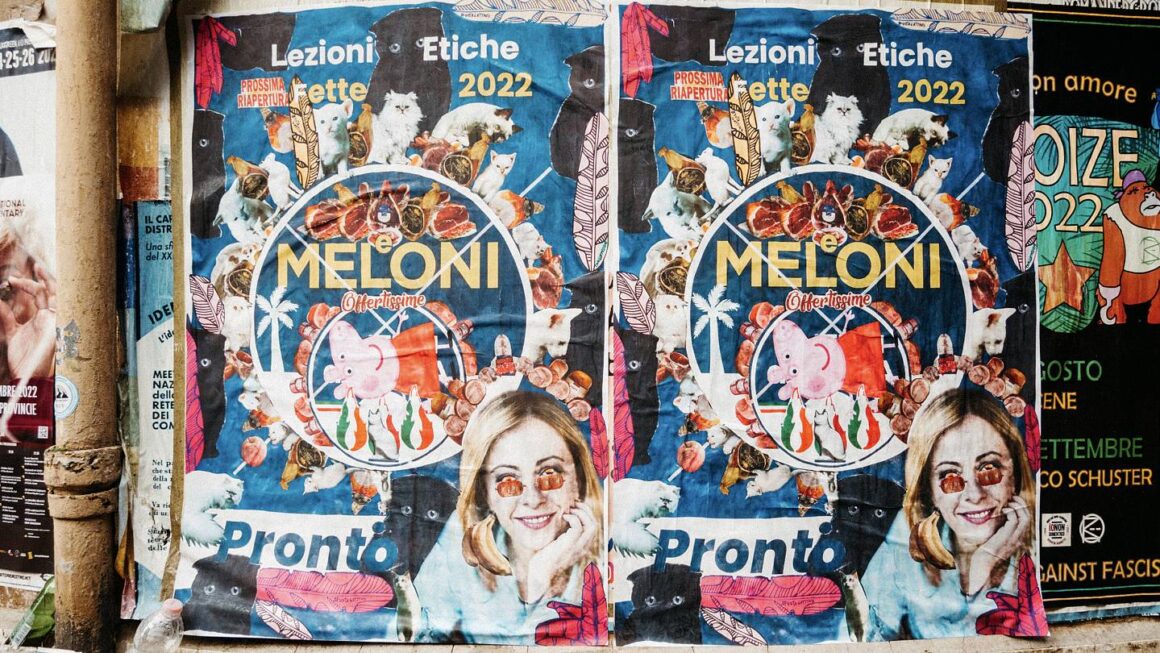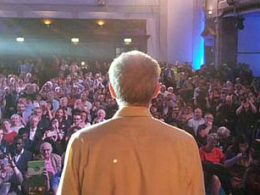By James McCabe
The far-right around Europe loudly celebrated as Giorgia Meloni became Italy’s new prime minister. Meloni received letters of congratulations from hard-right figures such as Victor Orbán in Hungary and Marine Le Pen in France. Her “Brothers of Italy” party topped the poll and allowed her to form a hard-right coalition government with two other parties.
While many mainstream media outlets across Europe assured readers and viewers that Meloni had long ago abandoned the neo-fascist politics of her youth, her victory undoubtedly spread a wave of fear amongst migrants, women, people of colour, and queer folk across Italy.
Threat to women, migrants & LGBTQ people
In a speech for the Spanish far-right Vox party back in June, she thundered: “yes to natural families, no to the LGBT lobby, yes to sexual identity, no to gender ideology, yes to the culture of life, no to the abyss of death.”
Although she’s Italy’s first woman prime minister, she wants to roll back rights for women, repeatedly emphasising women’s “right not to abort.” Her anti-choice language is not just rhetoric. In the Marche region, where the Brothers of Italy has been in power since 2020, the party refused to apply a directive from the central government to make all hospitals supply abortion pills to those who request them.
Meloni derogatorily refers to migrants and refugees as clandestini (“illegals”), and has disgracefully proposed a naval blockade of the Mediterranean.
Centrist establishment embraces Meloni
In her election campaigning, Meloni went to great lengths to emphasise that the capitalist establishment across Europe has nothing to fear in terms of her victory upsetting the economic or geopolitical status quo. She urged her political allies not to make pledges that they cannot keep and argued that “the priorities are to cut taxes, to support families and the competitiveness of businesses.” Specifically arguing for cuts to corporate profits, she claims that her coalition is on the “centre right” and that she thinks like Margeret Thatcher.
To ease the fears of the ruling classes of Europe and the US, she has underlined that she’s abandoned her EU scepticism. In a frenzy of pro-West rhetoric, her government has vowed to boost defence spending in order to “stand up to” China and Russia. These factors could explain the generally muted or neutral response to her election by the mainstream liberal press and political establishment. Hillary Clinton went as far as to say that Meloni’s election as prime minister will “open doors for women.” As long as the narrow interests of western imperialism are served, then it would seem that the rabid xenophobia and bigotry of these parties can be overlooked by the centrist capitalist establishment.
Crisis of capitalism in Italy
Almost a quarter of Italy’s youth are out of work and not in school. And while millions of working-class families are struggling to keep their heads above water, the banks and big business in Italy are making record profits. Since the end of World War II, Italy has had 70 governments, at an average of one every 14 months. The past four years have seen a number of eclectic coalitions, and national unity governments headed by technocrats. It’s not surprising, then, that people have become disillusioned with politics and that there was a historically low turnout for this election.
In contrast to today, electoral turnout consistently stood above 90% until the 1980s. Italian society once had mass parties with millions of members. After the fall of Benito Mussolini’s fascist dictatorship, the membership of the Italian Communist Party grew to 2.3 million in 1947, for example.
Divide-and-rule politics
What both the far-right and the liberal pro-capitalist establishment agree on is the lie that there’s a shortage of wealth and resources in society. Masking the fact that there is an enormous amount of wealth in Italian and European society. The problem comes down to who owns and controls that wealth. Right now the resources are hoarded by corporations and the rich.
A social and political movement of the left must now be built that unites workers and young people of all backgrounds in struggle. Such a movement must fight for a socialist economy that’s planned to meet the needs of the majority in contrast to capitalism; where the economy is geared solely towards the enrichment of the few, who benefit from stoking division and hate.












